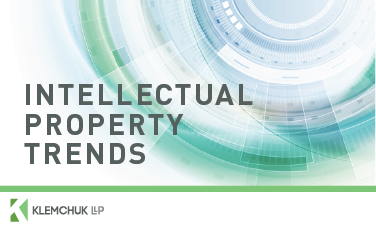Originally published by Peggy Keene.

Willfulness Requirement for Disgorgement of Profits of Trademark Infringer
Involving The Supreme Court is scheduled to hear arguments regarding disgorgement of profits in trademark infringement cases next week and whether a showing of willful conduct is required before such awards can be awarded.
Romag Fasteners, Inc. v Fossil, Inc.
Next week the Supreme Court will hear arguments regarding remedies under the Lanham Act in relation to trademark infringement claims under 15. U.S.C. § 1125(a). This section specifically deals with the illegal use of a mark, but arguably requires that the plaintiff prove that the defendant acted willfully in order for the court to award the plaintiff a portion of the defendant’s profits as opposed to winning a jury’s determination of damages instead.
In the case at hand, Fossil, Inc. (“Fossil”) had licensed from Romag Fasteners, Inc. (“Romag”) the right to use Romag’s patented magnetic fasteners on some of its handbags. At the heart of the case is a contract, which Fossil and Romag entered into, that allegedly required Fossil’s manufacturer in China to purchase the Romag magnetic fasteners from Romag’s Chinese licensee. The claim of trademark infringement arose, however, when Romag noticed that there were Fossil bags, using counterfeit magnetic fasteners, being sold at Macy’s. After some investigation, Romag determined that Fossil’s Chinese manufacturer was instead using counterfeit fasteners from an unauthorized source to cut costs.
Disgorgement of Profits for Trademark Infringement and Breach of Contract
In the first instance of the case, Romag sued Fossil and won a jury award of $90,000 of Fossil’s profits under an unjust-enrichment theory in addition to an award of approximately $6.7 million dollars of profits, which the jury claimed was to deter Fossil from engaging in any future trademark infringement of the same kind. A bench trial subsequently commenced to determine whether the jury’s awards were suitable, and the district court overturned the award, citing Section 1125(a), which arguably states that it must be proven that defendant acted willfully in order to award a portion of the defendant’s profits. On appeal, the Federal Circuit for the U.S. Court of Appeals affirmed the bench trial’s conclusions.
The wrinkle in this case comes from the wording of Section 1117 of the Lanham Act, which allows for an award of the infringers’ profits “subject in all cases to ‘principles of equity,” for, among other things, “a violation under Section 1125(a) or (d) of this title or a willful violation under Section 1125(c).” Because the statute is arguably confusing here by requiring willfulness under Section 1125(c), but not explicitly under (a) and (d), Romag argues that willfulness is not required under violations of Section 1125(a).
Is Willfulness a Requirement for Disgorgement of Profits?
The Supreme Court will decide whether willfulness is required for an award of a portion of the defendant’s profits because:
-
Sections 1117 and 1125 of the Lanham Act seem to be contradictory;
-
the Lanham Act speaks of “principles of equity,” but does not explicitly define it;
-
there are differing results in infringement cases decided before the adoption of the Lanham Act; and
-
the precedent has generally required a plaintiff to prove willful conduct.

ip litigation
You may also be interested in:
Sign up for and explore our content and thought leadership here.
About the Firm:
Klemchuk LLP is a litigation, intellectual property, transactional, and international business law firm dedicated to protecting innovation. The firm provides tailored legal solutions to industries including software, technology, retail, real estate, consumer goods, ecommerce, telecommunications, restaurant, energy, media, and professional services. The firm focuses on serving mid-market companies seeking long-term, value-added relationships with a law firm. Learn more about experiencing law practiced differently and our local counsel practice.
The firm publishes Intellectual Property Trends (latest developments in IP law), Conversations with Innovators (interviews with thought leaders), Leaders in Law (insights from law leaders), Culture Counts (thoughts on law firm culture and business), and Legal Insights (in-depth analysis of IP, litigation, and transactional law).
Curated by Texas Bar Today. Follow us on Twitter @texasbartoday.
from Texas Bar Today https://ift.tt/32rM9bw
via Abogado Aly Website
No comments:
Post a Comment